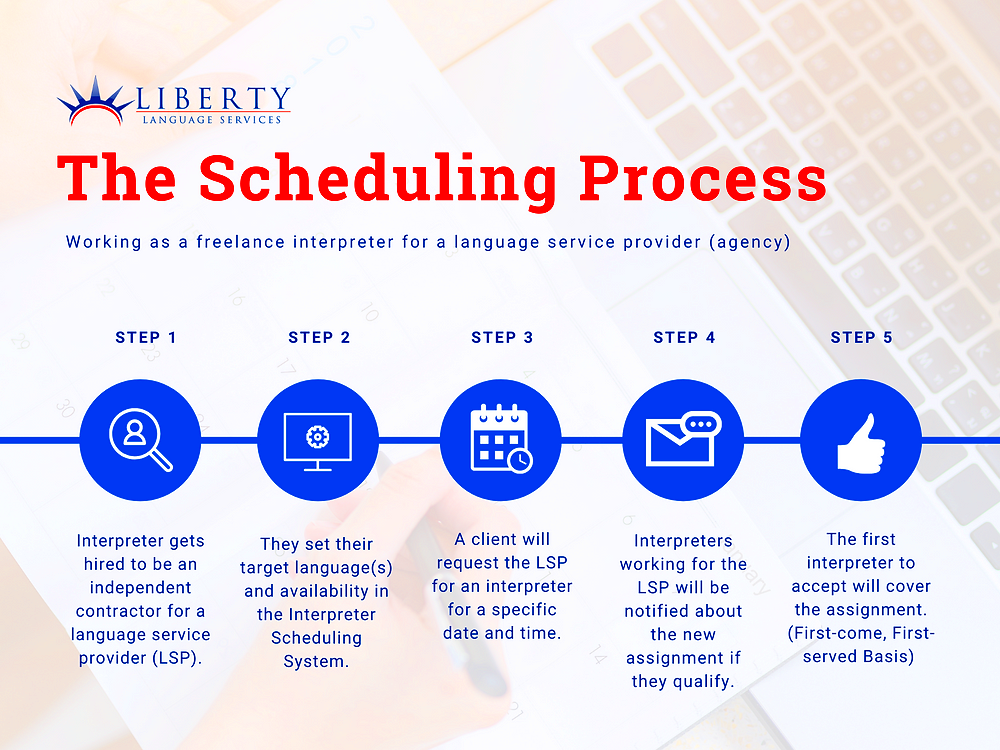A freelance interpreter plays a vital role in facilitating communication between people who speak different languages. This job is more than just translating words; it involves conveying the meaning, tone, and context of the conversation. Freelance interpreters can work in various settings, including conferences, business meetings, legal proceedings, and medical appointments. They may provide services in person, over the phone, or through video conferencing.
Interpreters need to be quick thinkers, as they often work in real-time and must accurately translate spoken words while capturing nuances. They should also be familiar with the cultures of both the source and target languages to ensure effective communication. As a freelancer, you have the flexibility to choose your clients and set your schedule, making this an appealing career choice for many.
Skills Needed to Become a Freelance Interpreter

To succeed as a freelance interpreter, you need a mix of essential skills:
- Language Proficiency: You must be fluent in at least two languages, including reading, writing, and speaking skills.
- Cultural Understanding: Familiarity with cultural norms and practices helps convey messages accurately.
- Listening Skills: Being attentive and able to process spoken information quickly is crucial.
- Memory Skills: Good memory aids in recalling what has been said, especially during long conversations.
- Impartiality: Interpreters must remain neutral and avoid adding their opinions to the conversation.
- Adaptability: Being able to adjust to different situations and client needs is important.
These skills not only enhance your performance but also build trust with clients and participants.
Also Read This: What is Fiverr CPA? A Comprehensive Guide
Choosing Your Specialization in Interpretation

When starting as a freelance interpreter, it’s essential to choose a specialization. Different fields require different knowledge and skills. Here are some common specializations:
| Specialization | Description |
|---|---|
| Medical Interpretation | Working in healthcare settings, requiring knowledge of medical terminology. |
| Legal Interpretation | Providing services in courts or law offices, needing an understanding of legal jargon. |
| Conference Interpretation | Translating during international meetings or events, often using specialized equipment. |
| Business Interpretation | Assisting in negotiations and meetings between international companies. |
Selecting a niche can help you stand out and attract specific clients. Think about your interests and any previous experience you have in a particular field. This focus can make your services more appealing to potential clients.
Also Read This: How to Launch Your Career as a Freelance Worker
Setting Up Your Freelance Business

Starting your freelance interpreting business involves more than just being a skilled interpreter. It requires careful planning and organization to ensure everything runs smoothly. First, you need to decide on your business structure, whether as a sole proprietor or a limited liability company (LLC). Each option has different legal and tax implications, so it's worth researching which is best for you.
Next, consider the following steps:
- Register Your Business: Choose a name that reflects your services and register it with your local government.
- Obtain Necessary Licenses: Check if you need any specific licenses or permits to operate legally in your area.
- Set Up a Professional Website: A website serves as your online portfolio. Include your services, contact information, and client testimonials.
- Establish a Pricing Structure: Research what other interpreters charge and set competitive rates for your services.
- Create a Business Plan: Outline your goals, target market, and strategies for growing your business.
Having a solid foundation for your freelance business can help you focus on delivering excellent services to your clients.
Also Read This: How to Find Gigs on Fiverr: A Comprehensive Guide
Finding Clients and Marketing Your Services
Once your freelance business is set up, the next step is finding clients. This can feel overwhelming, but there are several effective strategies to connect with potential clients:
- Networking: Attend industry conferences, workshops, and community events to meet potential clients and build relationships.
- Online Platforms: Use freelance job platforms like Fiverr or Upwork to find job listings tailored to your skills.
- Social Media: Utilize platforms like LinkedIn to showcase your services and connect with businesses in need of interpretation.
- Referrals: Ask satisfied clients to refer you to others or offer a discount for successful referrals.
- Content Marketing: Write articles or blog posts about your interpreting experiences or tips to establish yourself as an expert in your field.
Consistent marketing efforts and networking can lead to a steady stream of clients and help you build a solid reputation.
Also Read This: How to Become a Fiverr Choice: A Comprehensive Guide
Creating an Effective Freelance Profile
Your freelance profile is often the first impression potential clients will have of you, so it's essential to make it shine. Here are key elements to include:
- Professional Photo: Use a clear and professional headshot to make your profile personable and approachable.
- Compelling Bio: Write a brief introduction that highlights your experience, skills, and what makes you unique as an interpreter.
- Showcase Your Services: Clearly outline the types of interpretation you offer and any specialties you have.
- Client Testimonials: Include positive feedback from past clients to build credibility and trust.
- Rates and Availability: Be transparent about your pricing and the hours you are available for work.
By creating a strong freelance profile, you can attract more clients and stand out in a competitive market. Remember, your profile should reflect your personality and professionalism, making it easy for clients to choose you for their interpreting needs.
Also Read This: Can You Sell Physical Products on Fiverr?
Managing Your Time and Projects
As a freelance interpreter, time management is crucial for your success. You often juggle multiple projects and clients, so effective organization can help you meet deadlines and maintain high-quality work. Here are some strategies to help you manage your time effectively:
- Set Clear Goals: Outline your short-term and long-term goals. This helps you stay focused on what you want to achieve.
- Prioritize Tasks: Use a priority matrix to categorize tasks based on urgency and importance. Tackle high-priority tasks first.
- Use a Calendar: Keep a digital or physical calendar to track appointments, deadlines, and meetings. Schedule regular review sessions to adjust your plans as needed.
- Break Projects into Steps: For larger assignments, break them down into smaller, manageable tasks. This makes it easier to track progress and reduces overwhelm.
- Limit Distractions: Create a dedicated workspace and minimize interruptions. This helps you stay focused and productive.
- Set Time Limits: Use techniques like the Pomodoro Technique, where you work in focused bursts followed by short breaks, to maintain energy and concentration.
By implementing these strategies, you can manage your time more efficiently, ensuring that you deliver your best work while avoiding burnout.
Also Read This: How to Find and Get Remote Jobs in USA as a Foreigners
Frequently Asked Questions
As you embark on your journey as a freelance interpreter, you might have some questions. Here are answers to a few common queries:
- What qualifications do I need to become a freelance interpreter?
You typically need fluency in at least two languages, along with training in interpretation techniques. Certifications can enhance your credibility. - How do I set my rates?
Research industry standards and consider your experience level, specialization, and the type of work you are doing to determine competitive rates. - How can I gain experience?
Start with volunteer opportunities or internships to build your skills and gain references. Joining local interpreting associations can also provide networking opportunities. - What if I encounter a difficult client?
Maintain professionalism and open communication. If necessary, set clear boundaries regarding your work and fees.
Having answers to these questions can help you navigate your freelance journey with confidence.
Conclusion
Starting your career as a freelance interpreter can be a rewarding experience. With the right skills, organization, and marketing strategies, you can build a successful business. Remember, it's essential to continuously improve your skills and adapt to industry changes. Networking and maintaining strong relationships with clients will help you grow your reputation and client base.
By following the tips outlined in this guide, you can effectively manage your time, market your services, and create an impactful freelance profile. Embrace the journey, and remember that every step you take is a part of your growth as a professional interpreter. Good luck!




